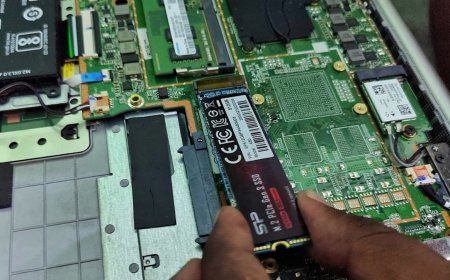How to Find Oakland Trumpet Lessons
How to Find Oakland Trumpet Lessons Learning the trumpet is a rewarding journey that combines musical expression, technical discipline, and personal growth. Whether you’re a complete beginner curious about producing your first note or an intermediate player looking to refine your tone and technique, finding the right trumpet lessons in Oakland can make all the difference. Oakland, with its rich cu
How to Find Oakland Trumpet Lessons
Learning the trumpet is a rewarding journey that combines musical expression, technical discipline, and personal growth. Whether you’re a complete beginner curious about producing your first note or an intermediate player looking to refine your tone and technique, finding the right trumpet lessons in Oakland can make all the difference. Oakland, with its rich cultural tapestry and vibrant music scene, offers a diverse array of instructors, studios, and learning environments tailored to different goals, ages, and styles—from classical and jazz to contemporary and marching band traditions.
However, navigating the landscape of trumpet instruction in Oakland isn’t always straightforward. With numerous private teachers, community centers, music schools, and online platforms offering lessons, it’s easy to feel overwhelmed. The key is knowing where to look, what to evaluate, and how to match your personal objectives with the right instructor. This guide provides a comprehensive, step-by-step roadmap to help you discover high-quality trumpet lessons in Oakland—whether you prefer in-home instruction, studio-based classes, or hybrid learning models.
This tutorial is designed for students, parents, and adult learners seeking clarity and confidence in their search. By the end, you’ll understand how to identify qualified teachers, assess teaching styles, leverage local resources, and avoid common pitfalls. You’ll also gain access to tools, real-world examples, and frequently asked questions that have helped hundreds of Oakland residents successfully begin—or continue—their trumpet education.
Step-by-Step Guide
1. Define Your Learning Goals
Before you begin searching for a trumpet teacher, take time to clarify your personal objectives. Are you learning for fun, preparing for school band, aiming for college auditions, or reviving a childhood passion? Your goals will directly influence the type of instructor and curriculum you need.
For example:
- If you’re a child starting in elementary school, you’ll benefit from a teacher experienced in working with young learners, using games and visual aids to build fundamentals.
- If you’re an adult returning to music after decades, you may prefer a patient, structured approach focused on breathing techniques and ear training.
- If you’re pursuing jazz improvisation, you’ll want someone who specializes in theory, scales, and playing over chord changes.
Write down your goals in one or two sentences. This will serve as your filter when evaluating instructors and programs. A teacher who excels in classical repertoire may not be the best fit if your passion is funk or soul trumpet.
2. Research Local Music Schools and Studios
Oakland is home to several reputable music schools that offer trumpet instruction as part of a broader curriculum. These institutions often employ certified instructors with formal training and maintain consistent schedules, making them ideal for structured learning.
Start by compiling a list of well-established music academies in Oakland:
- Oakland School for the Arts (OSA) – Offers private lessons to enrolled students and sometimes to the public through community programs.
- East Bay Music Academy – Located in downtown Oakland, they provide one-on-one instruction across genres and age groups.
- SoundBridge Music School – Known for its jazz and contemporary focus, with trumpet instructors who perform professionally in Bay Area ensembles.
- Alameda County Music Center – Offers affordable group and private lessons, often with sliding-scale pricing.
Visit each school’s website. Look for bios of their trumpet instructors, sample lesson plans, student performance videos, and pricing structures. Note whether they offer trial lessons, flexible scheduling, or instrument rental options.
3. Search Online Directories and Platforms
Online platforms are powerful tools for discovering private trumpet teachers in Oakland. These services allow you to filter by location, price, experience level, and teaching style.
Key platforms to explore:
- TakeLessons – A nationwide platform with a robust Oakland-based instructor network. You can read student reviews, view video introductions, and book trial lessons directly.
- Thumbtack – Allows you to post a request for trumpet lessons and receive quotes from local teachers. Useful for comparing rates and availability.
- Lessonface – Offers both in-person and live online lessons. Many Oakland-based teachers use this platform to reach students across the Bay Area.
- Yelp – Search “trumpet lessons Oakland” and sort by highest-rated. Read recent reviews for insights into teaching methods and student outcomes.
When using these platforms, pay attention to:
- Number of years teaching
- Specialization (e.g., jazz, classical, marching band)
- Student age range served
- Availability of virtual lessons
- Whether they provide sheet music or practice tools
4. Tap Into Local Community Resources
Oakland’s community centers, libraries, and churches often host music programs or can connect you with local musicians offering lessons.
Check out:
- Oakland Public Library – Their community events calendar sometimes lists free or low-cost music workshops and masterclasses.
- Community Centers – The Dimond, Eastmont, and Lake Merritt Recreation Centers occasionally offer after-school music programs for youth.
- Local Churches and Choirs – Many have instrumentalists who teach privately. Ask at churches with strong music ministries, such as St. John’s Presbyterian or the African Methodist Episcopal Zion Church.
- Oakland Symphony and Oakland Youth Orchestra – Alumni and current members often offer private instruction. Contact their education departments for referrals.
These community-based options are often more affordable and may provide a culturally rich learning environment. Instructors here may emphasize ensemble playing, improvisation, and performance opportunities within the neighborhood.
5. Attend Local Performances and Open Mic Nights
One of the most authentic ways to find a great trumpet teacher is to see them in action. Oakland’s music scene is alive with live performances—from jazz clubs in the Temescal district to outdoor festivals in Lake Merritt.
Visit venues like:
- The New Parish – Hosts local jazz and funk bands featuring trumpet players.
- Amoeba Music – Occasionally hosts in-store performances and artist meetups.
- Oakland Jazz Festival – Held annually, this event brings together regional musicians and educators.
- Open Mic Nights at Café Caffeine or The Back Room – Great places to hear emerging talent.
When you hear a trumpet player whose style resonates with you, don’t hesitate to ask if they teach. Many professional musicians offer private lessons on the side. This method often leads to finding a teacher who is not only skilled but deeply connected to the local music culture.
6. Ask for Referrals from Band Directors and Music Educators
If you or your child is currently in a school band program, your band director is a goldmine of information. They know which private instructors have a track record of improving students’ technique, tone, and musicianship.
Ask questions like:
- “Which private teachers do your top students study with?”
- “Do you have a list of recommended instructors for beginners or advanced players?”
- “Are there any teachers who specialize in helping students prepare for solo and ensemble contests?”
Band directors often maintain relationships with local music educators and can provide personalized recommendations based on your specific needs.
7. Evaluate Teaching Style and Compatibility
Not all great musicians are great teachers. A skilled performer may lack patience, structure, or the ability to explain concepts clearly. When you’ve narrowed down your options, schedule trial lessons—most instructors offer a 30-minute introductory session at a reduced rate or even free.
During the trial, observe:
- Does the teacher begin with a clear lesson plan?
- Are they attentive to your posture, breathing, and embouchure from the start?
- Do they adapt their teaching to your learning style (visual, auditory, kinesthetic)?
- Do they encourage questions and provide feedback in a constructive way?
- Do they assign meaningful practice goals for the week?
Also consider logistics: Is the location convenient? Is the studio quiet and well-equipped? Do they use a metronome, tuner, and music stand? These small details reflect professionalism and commitment to quality instruction.
8. Compare Pricing and Payment Models
Trumpet lesson prices in Oakland vary widely based on the instructor’s experience, location, and format. As of 2024, here’s what you can expect:
- $30–$50/hour – Entry-level instructors, often students or recent graduates from music programs.
- $50–$80/hour – Experienced teachers with college degrees, performance credits, and established studios.
- $80–$120/hour – Professional performers, university faculty, or specialists in advanced techniques (e.g., high range, jazz improvisation).
Some teachers offer:
- Group lessons at a discounted rate (e.g., two students for $40 each)
- Monthly packages (e.g., 4 lessons for $160)
- Sliding scale or scholarship options for low-income families
Always ask about cancellation policies, make-up lesson rules, and whether materials (books, sheet music) are included. Avoid instructors who demand large upfront payments for months of lessons without a trial.
9. Check Credentials and Background
While formal credentials aren’t the only indicator of quality, they provide assurance of foundational training. Look for instructors with:
- A degree in music performance, music education, or related field
- Membership in professional organizations like the International Trumpet Guild (ITG)
- Teaching experience at schools, colleges, or community programs
- Performance credits (e.g., played with local bands, orchestras, or recorded albums)
Don’t hesitate to ask for a resume or CV. A confident, professional teacher will be happy to share their background. If someone refuses or becomes defensive, it may be a red flag.
10. Start with a Trial and Commit Gradually
Never commit to a long-term contract before trying a few lessons. Even if a teacher seems perfect on paper, chemistry matters. Your relationship with your instructor should be collaborative, motivating, and enjoyable.
Begin with two or three trial lessons spaced a week apart. After that, reflect:
- Do you look forward to your next lesson?
- Do you feel you’re making measurable progress?
- Does the teacher communicate clearly and follow through on promises?
If yes, then consider signing up for a monthly package. If not, keep searching. There’s a teacher out there who’s the right fit for you.
Best Practices
Establish a Consistent Practice Routine
Lessons alone won’t make you a better trumpet player—you need consistent, focused practice. A skilled teacher will help you design a daily routine, but it’s up to you to follow through.
Recommended practice structure:
- Warm-up (5–10 minutes) – Long tones, lip slurs, breathing exercises
- Technique (10–15 minutes) – Scales, arpeggios, articulation drills
- Repertoire (15–20 minutes) – Working on pieces assigned by your teacher
- Ear Training & Improvisation (5–10 minutes) – Singing melodies, playing by ear, simple improvisation
Use a metronome and recording device to track progress. Even 20 minutes a day, five days a week, yields significant improvement over time.
Invest in Quality Equipment
A poor-quality instrument can hinder progress and discourage beginners. If you’re just starting, rent a trumpet from a reputable music store like California Music Center or Long & McQuade before buying.
For beginners, a reliable student model trumpet like the Yamaha YTR-2330 or Bach TR300H is ideal. Avoid cheap, no-name horns sold online—they often have intonation problems and poor valve action that make learning unnecessarily difficult.
Regular maintenance is also key. Get your trumpet cleaned and oiled every 6–12 months. A well-maintained instrument plays better and lasts longer.
Join a Local Ensemble or Group
Playing with others accelerates learning. Look for:
- Community bands (e.g., Oakland Community Band)
- Adult jazz ensembles
- School or church choirs that include brass
- Trumpet choirs or brass workshops hosted by local music schools
Ensemble experience builds rhythm, listening skills, and confidence. It also creates accountability—you’ll be more motivated to practice if you know you’ll be playing with others soon.
Record and Review Your Playing
Most students underestimate how much they can learn by listening to recordings of themselves. Use your phone to record a short passage after each lesson. Compare it to your teacher’s demonstration or a professional recording.
Ask yourself:
- Is my tone steady or wobbly?
- Are my notes in tune?
- Do I breathe smoothly between phrases?
Over time, you’ll develop critical listening skills—essential for any serious musician.
Stay Informed About Music Education Trends
Music pedagogy evolves. Modern trumpet instruction often incorporates:
- Body awareness and posture training
- Neurological approaches to muscle memory
- Technology-assisted learning (apps for tuning, metronomes, notation software)
- Positive psychology techniques to reduce performance anxiety
Follow reputable sources like the International Trumpet Guild journal, YouTube channels like Trumpet Herald, and podcasts such as The Trumpet Show to stay current.
Tools and Resources
Essential Apps for Trumpet Students
Technology can enhance your learning experience. Here are the top apps used by Oakland trumpet students:
- Pro Metronome – Customizable tempo settings with visual and audio cues.
- Tuner – gStrings – Accurate pitch detection with color-coded feedback.
- ForScore – Digital sheet music organizer with annotation tools.
- Soundbrenner – Wearable metronome and vibration tuner for hands-free practice.
- YouTube – Search “trumpet embouchure tutorial” or “jazz trumpet scales” for free demonstrations from world-class players.
Recommended Books and Method Series
Every serious trumpet student should work through foundational method books. Popular choices include:
- Arban’s Complete Conservatory Method – The gold standard for technical development.
- Herbert L. Clarke’s Technical Studies – Excellent for lip slurs, tonguing, and endurance.
- Charles Colin Lip Flexibilities – Builds embouchure strength and flexibility.
- Standard of Excellence – Ideal for beginners and school band students.
- Trumpet Technique: A Practical Guide for Players and Teachers by James R. Thompson – A modern approach to fundamentals.
Your teacher will likely assign specific books based on your level. Don’t rush through them—master one concept before moving on.
Local Music Stores in Oakland
These stores offer instrument rentals, repairs, accessories, and sometimes even free clinics:
- California Music Center (Oakland) – Full-service shop with knowledgeable staff and rental programs.
- Music & Arts Center (Piedmont Avenue) – Offers instrument rentals and lesson referrals.
- Alameda Music Center – Just across the bay, but popular with Oakland residents for repairs and used instruments.
Many stores offer free instrument inspections for students who are considering purchasing. Take advantage of these services.
Online Communities and Forums
Connect with other trumpet learners:
- Reddit: r/Trumpet – Active forum with Q&A, gear advice, and practice tips.
- Facebook Groups – Search “Bay Area Trumpet Players” or “Oakland Music Students” for local events and recommendations.
- International Trumpet Guild (ITG) – Offers student memberships, webinars, and performance opportunities.
Engaging with these communities can lead to new learning opportunities, practice partners, and even performance invitations.
Real Examples
Example 1: Maya, Age 12 – Starting in School Band
Maya joined her middle school band with no prior experience. Her band director recommended a teacher from the East Bay Music Academy who specialized in young beginners. After a trial lesson, Maya’s instructor used color-coded finger charts and a “sound game” to help her produce her first notes. Within three months, Maya was playing simple melodies with good tone. Her teacher assigned weekly recording assignments, which helped her hear her own progress. After six months, Maya was selected to play a solo at the school concert.
Example 2: James, Age 45 – Returning to Trumpet After 20 Years
James picked up his old trumpet after seeing a jazz performance at The New Parish. He found a teacher on TakeLessons who had played with the Oakland Symphony. Their lessons focused on breath support and embouchure retraining. James practiced 20 minutes a day using a metronome app and recorded himself weekly. After eight months, he joined a community jazz ensemble and now performs monthly at local cafes. He says, “I thought I was too old to learn, but my teacher proved me wrong.”
Example 3: Priya, Age 18 – Preparing for College Auditions
Priya wanted to major in music and needed to prepare for conservatory auditions. She worked with a private instructor who was a graduate of Juilliard and taught at OSA. Her curriculum included advanced etudes from Arban, sight-reading drills, and mock auditions. Her teacher recorded her performances and gave detailed feedback on tone quality and phrasing. Priya was accepted into three top music programs and credits her teacher’s rigorous, personalized approach.
Example 4: The Martinez Family – Group Lessons for Siblings
The Martinez family enrolled both their 10-year-old and 14-year-old in a group trumpet class at the Alameda County Music Center. The instructor used ensemble playing and duets to keep them engaged. The younger child learned basics through games, while the older one worked on jazz improvisation. The family saved 40% compared to private lessons and both kids developed a love for music together.
FAQs
How much do trumpet lessons cost in Oakland?
Private trumpet lessons in Oakland typically range from $30 to $120 per hour, depending on the instructor’s experience, location, and format. Group lessons can be as low as $20 per student per hour. Many teachers offer discounted monthly packages.
Can I take trumpet lessons online if I live in Oakland?
Yes. Many Oakland-based instructors offer live online lessons via Zoom or Lessonface. Online lessons are ideal if you have a busy schedule, prefer learning from home, or want to study with a teacher outside the immediate area. A good internet connection and a quiet space are essential.
What age is too young or too old to start trumpet lessons?
Most teachers recommend starting trumpet lessons around age 8–9, when children have the physical strength to hold the instrument and sufficient lung capacity. However, some instructors work with motivated 6- and 7-year-olds using smaller instruments. There is no upper age limit—adults of all ages can learn and thrive on the trumpet.
Do I need to buy a trumpet before starting lessons?
No. Most teachers and music stores offer rental programs. Renting for the first 3–6 months is a smart choice until you’re sure you want to continue. Many rental fees can be applied toward a future purchase.
How long does it take to learn to play the trumpet well?
Basic proficiency—playing simple melodies with good tone—can take 3–6 months with consistent practice. Mastering the instrument, including range, dynamics, and improvisation, takes years of dedicated study. Progress depends on practice frequency, quality of instruction, and personal motivation.
What if I don’t have a music background? Can I still learn?
Absolutely. Many successful trumpet players started with no prior musical experience. Your teacher will guide you through reading music, rhythm, and technique from the ground up. All you need is curiosity and willingness to practice.
Are there scholarships or financial aid options for trumpet lessons in Oakland?
Yes. Organizations like the Oakland Youth Orchestra, East Bay Music Academy, and the Alameda County Music Center offer need-based scholarships. Some private teachers also provide sliding-scale rates. Always ask—many programs are underutilized.
How do I know if a trumpet teacher is right for me?
Look for someone who listens to your goals, explains concepts clearly, provides structured feedback, and encourages you without pressure. Trust your instincts—if you feel inspired and supported after a few lessons, you’ve likely found a good match.
What should I bring to my first trumpet lesson?
Bring your trumpet (or rental instrument), a music stand, a notebook, a pencil, and a tuner/metronome if you have one. If you don’t have equipment, most teachers will have extras on hand. Don’t worry about having everything—your teacher will guide you.
Can I switch teachers if I’m not happy?
Yes. Finding the right teacher is personal. If you feel stagnant, discouraged, or misunderstood, it’s okay to try someone else. Most instructors understand that chemistry matters and won’t take it personally. Always give a few lessons a fair chance, but don’t stay with someone who doesn’t meet your needs.
Conclusion
Finding the right trumpet lessons in Oakland isn’t just about locating a teacher—it’s about discovering a mentor who will guide you through the challenges and joys of musical expression. Whether you’re a child taking your first breath through a mouthpiece or an adult rediscovering the thrill of a soaring high C, the journey begins with intentional, informed choices.
This guide has walked you through every step: from defining your goals and researching local options, to evaluating teaching styles, leveraging community resources, and using modern tools to enhance your progress. Real examples show that success is possible at any age and background. Best practices remind us that discipline, consistency, and curiosity are just as important as the instructor you choose.
Remember: The best trumpet teacher in Oakland isn’t necessarily the most famous or the most expensive. It’s the one who sees your potential, meets you where you are, and helps you grow—not just as a player, but as a musician and a person.
Take your time. Ask questions. Try a few lessons. Listen to your instincts. And above all, enjoy the sound of your own voice emerging through the trumpet. Oakland’s musical heritage is rich and diverse—and now, you’re part of it.





























